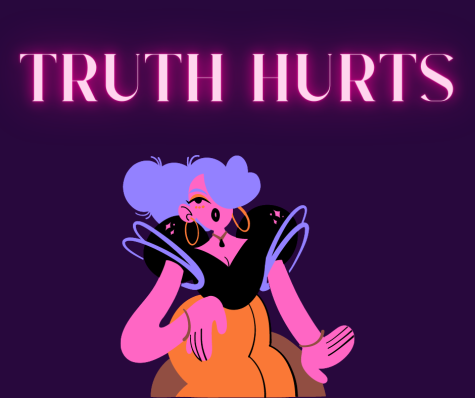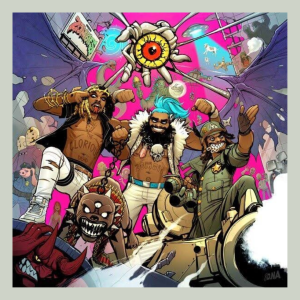Can Honesty Honestly Be Bad?
November 17, 2022
 We all remember when rapper-flutist, Lizzo, put out her hit song, “Truth Hurts” back in 2019. This resurgence of the moral dilemma, to tell the truth or to tell a lie, many of us struggle with struck a line in me. I began questioning myself when telling a story, giving advice or even dealing with my personal opinions about things. Do I tell the truth with the possibility of offending someone with my words, or do I tell a lie to avoid conflict?
We all remember when rapper-flutist, Lizzo, put out her hit song, “Truth Hurts” back in 2019. This resurgence of the moral dilemma, to tell the truth or to tell a lie, many of us struggle with struck a line in me. I began questioning myself when telling a story, giving advice or even dealing with my personal opinions about things. Do I tell the truth with the possibility of offending someone with my words, or do I tell a lie to avoid conflict?
Growing up, many of us learn the old saying “sticks and stones may break my bones, but words can never hurt me.” This line is something I can remember repeating in my head when dealing with bullies in elementary school or mean girls in high school. In trying to suppress feelings of sadness triggered by hurtful words, I began internalizing valid emotions that had a profound impact on my mental health.
As a creative writing student, I learned the power that words hold on the lives of many people and myself. Words are used when delivering powerful speeches, in our favorite songs, in propaganda used in shaping our government and political views, and even just personal conversations between friends. Words are used to express ourselves, written or spoken. It is the way one delivers these words that causes the greatest impact.
I find myself filtering my words based on my surroundings, avoiding confrontation and doing my best to not share my own opinions or personal truths in attempts to spare someone that shared knowledge that the truth, indeed can hurt sometimes. The issue with the prohibition, “Do not lie”, is that we all lie. If you have ever told a child about Santa Claus or lied that you loved the ugly sweater your great aunt knitted for you, you lied. Is this lying justified?
These lies were more like white lies. A lie in general is usually told with malicious intent or detrimental consequences. However, when telling a white lie or slightly bending the truth, the intent usually is positive with no grave consequences.
White lies are usually made for purpose. Whether this purpose is to create a magical world for our children, or, more often, to be polite and demonstrate social manners. Being totally honest in certain situations can be offensive and employing white lies can show signs of civility. The difference here is that real lies, big lies, can be seen as self-serving with more of a negative connotation.
The way I see it, when someone lies out of altruism to protect others feelings or to ease their pain, these lies can be seen as acceptable. Most people lie to be considerate of others emotions, to protect their own egos and self-image or to compensate for our sensitivity to power.
I think the largest issue comes when you’ve created a different reality with your lies. Our brains react to this continued dishonesty, and it can almost become a habit or second nature to one to tell a lie. Whether it be told in attempts to seem less flawed or maybe even in sparing someone else’s suffering, telling many white lies or large lies can seem enticing. Some innocuous fibbing can, in turn, get you into trouble.
I think more than anything, sometimes lies are justified. Sometimes lies are needed in our social construct in order to avoid hurt feelings and to maintain peace. While I think that making a habit of lying is wrong, there is a time and a place when it can be and is necessary to bend the truth.



